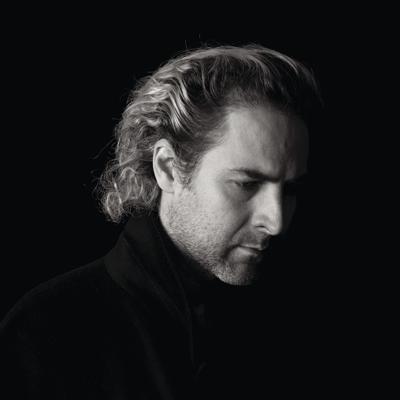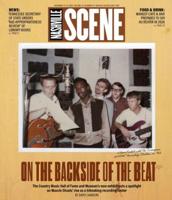
Peace Police
For many of us who lived through pandemic lockdown, we need only think of “2020” and an array of feelings and memories comes welling up: loneliness, weird disjunctions in time, unease on a cosmic scale. On Tuesday, Peace Police — the project of New York-born singer, songwriter and multi-instrumentalist Francesco Saxton, who moved to East Nashville in 2017 — will release 2020, its second LP of distinctive, melancholy folk-schooled rock. The album’s title and the emotional landscape Saxton explores might suggest that it’s a reflection on COVID quarantine, but Saxton simply names Peace Police albums for the year they’re finished; 2020 was nearly complete when the pandemic began.
“I would have loved to have had it come out [earlier], because I do resonate with the moment, and I do try to speak about what it feels like to be alive today,” Saxton tells the Scene. “And I think that there’s a lot of humor in what I do, and there’s a lot of heart, but they’re not, like, party records. I don’t sacrifice what I want to say or the complexity of what I want to express for the sake of accessibility or commercial viability. I feel an obligation as an artist not to sugarcoat how it feels to be alive and to struggle with everything that everybody struggles with.”
Saxton’s lyrics — which often work excellently as poetry, a rare occurrence despite the natural overlap between the two distinct art forms — sometimes explore maintaining hope in trying circumstances, and sometimes examine living when hope has not just vanished but been violently eradicated. His portrayal of the weariness and bitterness that comes with those experiences feels honest, and it hits close to home whether it’s been a while since you’ve been through a similar kind of turbulence or you’re living through it right now.
One theme running through 2020 is the long-lasting impact of relationships, strained though they may be. In the title track, the narrator salutes the memory of a friend and mentor they’d lost touch with long ago, whom they hear has recently died. It’s implied that the late friend struggled to survive as an artist in a capitalist economy that does not account for the cultural value of art. That’s another prominent theme in 2020, especially the closing trio of “Rags to Riches to Rags,” “Life Is Like the Movies” and “Song4Sale.”
“I read a thing in the New Yorker today, a profile on private parties and artists performing for billionaires,” says Saxton. “It’s a pretty dramatic feast-or-famine type of landscape that’s going on — it’s kind of like, people are having pyramids built for them, and then other people are in the sun, you know, pushing the rocks and getting flogged. … I have no problem with people making accessible or commercial music, I enjoy some of that. The thing that I take issue with is when that kind of stuff gets kind of hyperbolized, or touted as poetic or artistic, because I think that dilutes what’s going on. There are other artists who have the courage to do rigorous work.”
The new album follows Peace Police’s debut 2022, a collection of songs Saxton wrote and recorded at home in a quick burst and released in November. That process was more in line with the working method of Heaven’s Jail, the band he fronted from the Aughts until their amicable dissolution in 2016. They made four albums of snarling, simmering rock with elements of folk deep in its DNA — a sound aptly compared to Tom Petty and the Heartbreakers and Thin Lizzy — with Saxton’s rich, articulate tenor voice riding on top.
In contrast, 2020 was recorded over several months of late-night sessions at Berry Hill studio Club Roar. Though Saxton plays many instruments on it himself, it features a variety of collaborations with friends old and new, including longtime locals and recent transplants. Bassist Kevin Black, keyboardist Jo Schornikow and cellist Austin Hoke “fit into the constellation right away,” as Saxton says. Marissa Nadler contributes ethereal vocals, while Creston Spiers and Kyle Spence from Athens, Ga., rockers Harvey Milk appear on guitar and drums, respectively, and guitar master Ben Chasny, aka Six Organs of Admittance, plays in a style that complements Saxton’s own.
Saxton looks at his life and his work — from writing to playing guitar to directing his own music videos — as parts of a complete artistic package. His songs on 2020 and 2022 scan as rooted in folk, with understated fingerpicking on acoustic and electric guitar and a focus on narrative; he mentions the effort he’s put in to make his voice and his playing blend into a signature sound, they way they have for Joni Mitchell or the late, great Gordon Lightfoot. But Saxton also points to the influence of heavy metal and hip-hop, his first two loves as a youngster.
“There’s a lot of — you could call them, like, riffs or licks in there, that are sort of repeating phrases,” he says. “Sometimes I write in stanzas where it’s building to a punch line in the fourth line. I feel like that’s something that comes from all the rap music that I listen to, where there’s sort of building up, and then the last line that they say is the real knockout blow.”
You’re not likely to feel all warm and fuzzy in the wake of such haymakers as: “I can’t explain / Sometimes it’s all too much / You might as well / Ask a bell / ‘Hey, what’s it like being struck?’” But that discomfort can be just the catalyst for building the world you want to live in.





